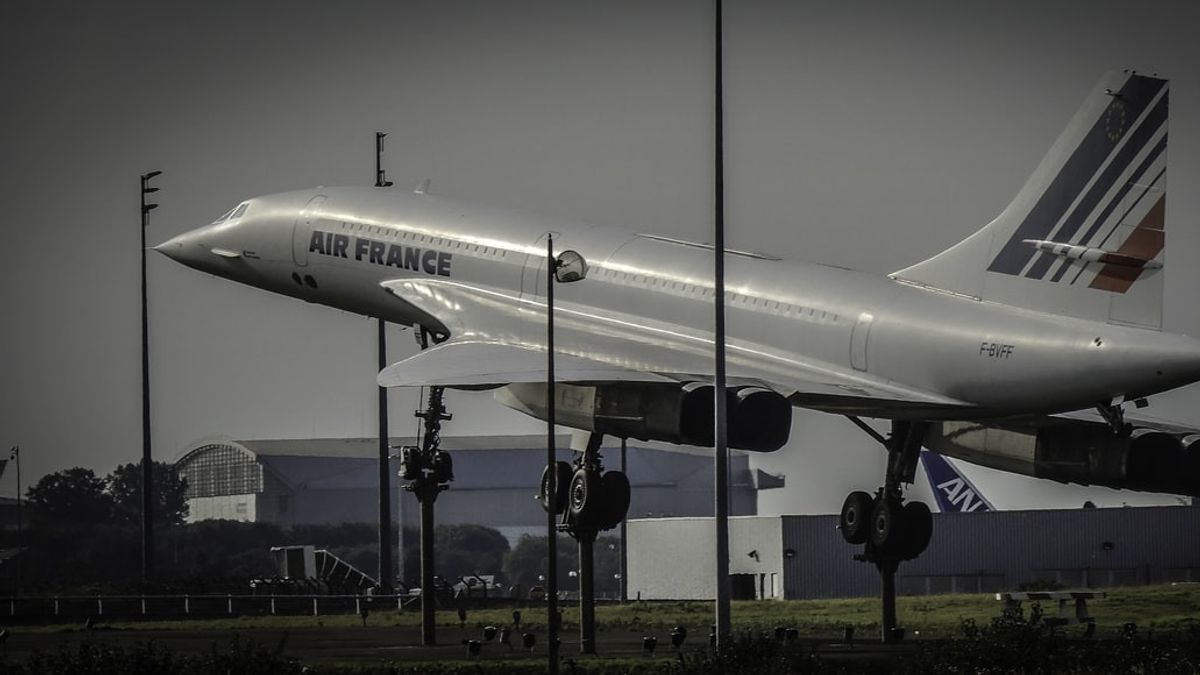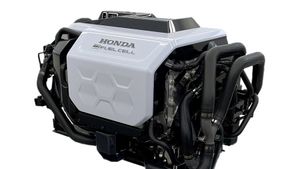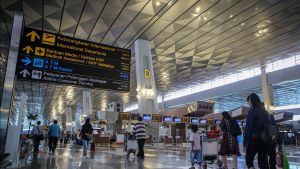JAKARTA - Environmental activists and several European countries will clash with the United States over the possible return of supersonic aircraft travel. They say efforts to establish noise guidelines by the middle of the decade could undermine efforts to combat climate change in the world.
As Reuters reports, after nearly two decades after the last flight of the Anglo-French Concorde, a United Nations panel of aviation experts met from Monday, February 7 and will consider updating the decades-old supersonic noise standard by 2025.
This initiative has been supported by the US government as well as US-based aerospace company Boom. They have targeted to launch a form of supersonic travel that is quieter and less polluting than the sleek but noisy Concorde. This new super-fast transportation vehicle will transport the rich and famous across the Atlantic Ocean.
Although jointly developing the only commercial jet to break the sound barrier in the 1960s, France has teamed up with Norway and Sweden to try to delay procedural work on a future supersonic jet. Instead they want to focus on emission rules for subsonic flight.
All three countries have made climate action a political priority and want UN experts to focus on current sources of industrial emissions. This was confirmed by several people close to the discussion of the International Civil Aviation Organization.
Montreal-based ICAO sets the standard in everything from runway markings to accident investigations, which its 193 member states typically translate into regulatory requirements.
"Aircraft makers need those standards "long in advance" to ensure they meet official expectations," said Dan Carnelly, vice president on the International Coordination Council of the Aerospace Industry Association, the international aerospace lobby.
"No manufacturer can risk that they invest billions of dollars in designing and testing new products only to become obsolete because of new regulations that are put in place as soon as they start operating," he said.
Highly technical discussions are the key to a promising niche market to create thousands of jobs. Boom plans a plant in North Carolina and gets an order from United Airlines.
But critics say the focus on supersonics will now divert time and expertise that could be used to reduce emissions from a wider range of aviation, a priority this year for full ICAO membership, including the United States.
"Supersonic aircraft are a huge nuisance to ICAO," said Dan Rutherford, Director of Aviation at the International Council for Clean Transport, a US-based environmental research group.
The aerospace company warned that ignoring supersonics at this early stage could be a recipe for countries to do it themselves.
"A patchwork of different local regulations would be very difficult, if not impossible, to manage," Carnelly said.
ICAO declined to comment in discussions at the Aviation Environmental Protection Committee taking place from February 7 to 18. The US Federal Aviation Administration (FAA) also declined to comment.
So far, supersonic aircraft have struggled to meet the noise and emission standards set for conventional aircraft.
Boom said its 'Overture' jets would meet the noise levels already in place for subsonic aircraft and run fully on sustainable aviation fuel when they start flying passengers in 2029.
Carnelly said guidelines stipulating that noise limits should be the same for supersonic and subsonic were urgently needed for technical reasons.
"The best thing for the industry is to have clear, timely and global standards," said a Boom spokesperson.
The company will begin certification flight tests in 2026 ahead of commercial flights before the end of the decade.
Some analysts remain cautious about its schedule, which initially called for the planes to enter service in 2023.
The English, Chinese, Japanese, Arabic, and French versions are automatically generated by the AI. So there may still be inaccuracies in translating, please always see Indonesian as our main language. (system supported by DigitalSiber.id)









